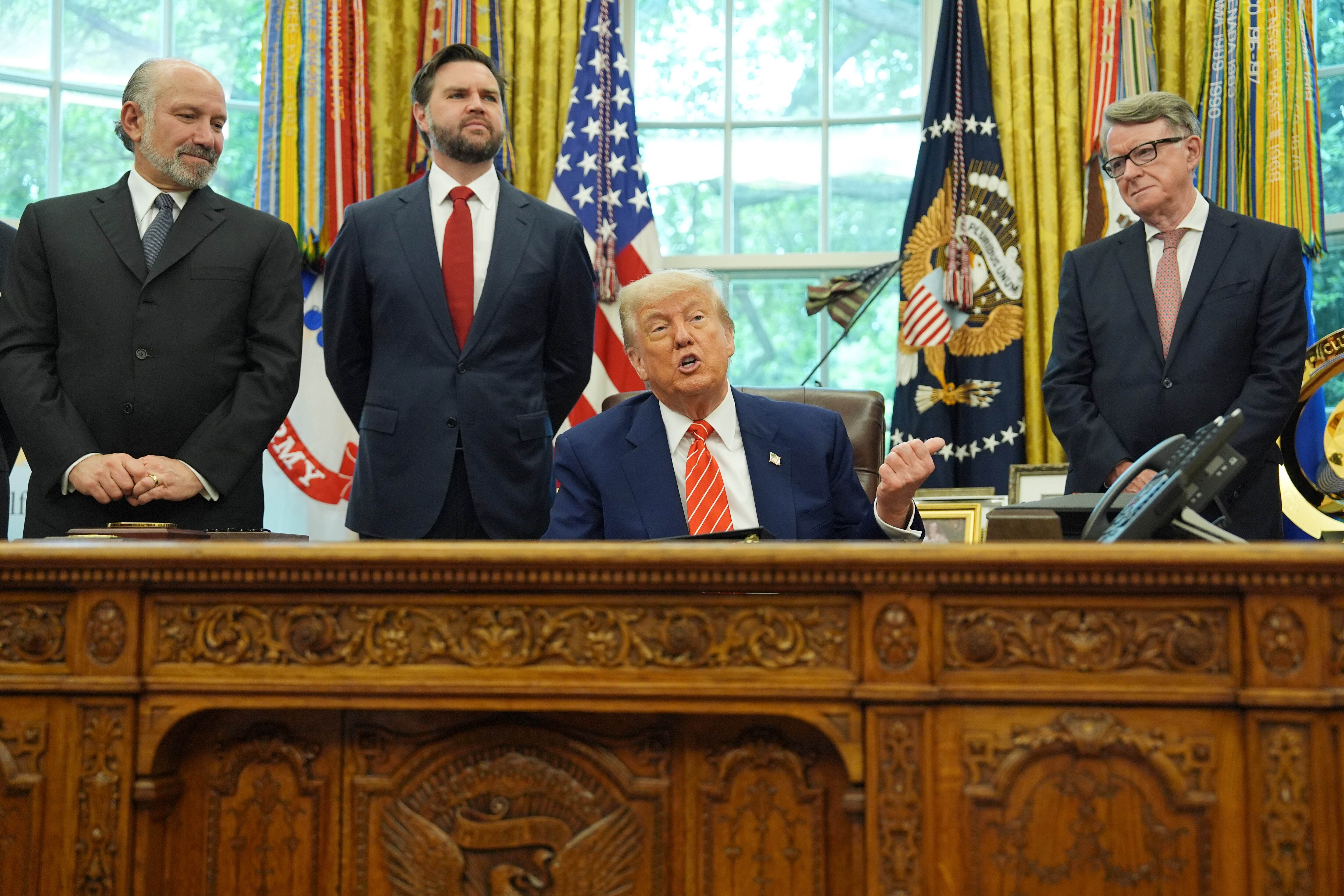WASHINGTON (AP) — The Trump administration announced a trade deal with the United Kingdom Thursday in grandiose terms, but with only limited details about what it will achieve.
The agreement will open up the British market to American beef, ethanol, and other agricultural products, the White House said. It will also allow British cars and steel better access to U.S. consumers.
The pact provides some support for President Donald Trump’s arguments that his steep tariffs could lead to agreements that open up overseas markets. But economists’ initial reactions were cool, with many noting that the United Kingdom isn’t a large enough trading partner for the U.S. to really move the needle for the U.S. economy.
“It’s more symbolic than economic,” Beata Caranci, chief economist at the bank TD Economics, said in an email. “What we have learned is that these initial announcements are going to be more fine-tuning around the edges and easing of pain points, rather than an end to the trade war.”
Trump said in the Oval Office Thursday that additional details will be worked out in the “coming weeks.” But in a fact sheet the administration said the deal is “historic” and “a great deal for America.”
U.K. Prime Minister Keir Starmer has said the deal would protect thousands of auto jobs and stressed the importance of the relationship between the two countries.
The U.K. is the United States’ fourth largest export market, though has received just 4.5% of U.S. exports this year.
What’s in the deal:
—The United States will maintain the 10% duty on nearly all imports from the U.K., which Trump imposed April 2. Many economists had hoped that the tariff would be dropped as part of any trade deal, but Trump suggested that the 10% universal duty was likely to be a floor in any future talks with other countries.
—The U.S. will cut its tariffs on car imports from the U.K. to 10% from 27.5%, according to the U.K. government, but only up to 100,000 cars. The U.K. exported 92,000 cars to the U.S. in 2024, which means the U.K. auto industry won’t be able to boost its shipments without paying higher duties.
—U.K. steel exports will enter the U.S. duty-free, rather than face the 25% tariff the White House has placed on imported steel.
—The two countries have agreed to greater market access for each other’s beef, with both nations able to export 13,000 metric tons of beef to each others’ countries.
—The U.K. will eliminate its tariff on ethanol from the U.S., up to 1.4 billion liters.
—The U.S. will lift all duties on airplane engines and other aerospace parts from the U.K.’s Rolls Royce. In return, a U.K. airline will soon announce the purchase of $10 billion in planes from Boeing.
—The U.K. will reduce its average tariff on U.S. goods to 1.8%, which would amount to a $200 million cut in duties, the British government said. The U.K. will also lower import taxes on about 2,500 U.S. products including olive oil, wine and sports equipment.
—The U.K. will “reduce or eliminate” non-tariff barriers to U.S. exports, the White House said, though it did not provide details. The agreement creates opportunities for $5 billion in new exports of U.S. agricultural and other goods, according to the administration’s fact sheet.
What’s not in the deal, at least not yet
—The agreement does not provide U.S. companies any additional access to the U.K.’s government-run national health service.
—There also aren’t any changes on the U.K.’s digital services tax, which hits U.S. tech giants such as Amazon, Alphabet’s Google, and Facebook parent Meta. Trump has strongly criticized the tax. The U.K. government said, however, that the two nations have agreed to negotiate on a digital trade deal.
—Trump said the deal did not exempt the U.K. from the 100% tariffs on foreign-made films he has proposed.
—Negotiations are still ongoing in areas such as pharmaceuticals, semiconductors, critical minerals, copper and lumber, a British trade official said.









